Cache
Cache : Movie Review
Four stars out of Five (Excellent)
Director & Writer : Michael Haneke
French (English subtitles available), 2015
With some directors, the idea of the film becomes so important that the aesthetic joy of watching cinema is cached where the sun don't shine. I've had that problem with Charlie Kaufman although to be fair I do need to watch both 'Eternal Sunshine..." and "Synecdoche, New York" a second time. No such issues have arisen with the films I have watched from Michael Haneke's lens. "Amour" and "White Ribbon" - both enough to make many casual viewers drift away - have been lean, mean and strikingly artistic while making their emotions clearly come through. And those same attributes attach to "Cache' - a psychological thriller set in the homes and streets of unadorned Paris.
It is unsparingly minimalistic no doubt, but there is also subtle and exact spicing - in the form of familiar slices of every-day life, singular still-captures that are the stuff of masterpieces, a consistent invitation to be more humane - to imperceptibly cut through the blandness.
The plot is simple - a wealthy family in Paris is unnerved when they are anonymously sent tapes which are video recordings of their lives. Of the head of the family's life in particular. The family comprises three people - the man Georges (Daniel Auteuil) , the woman Anne (Juliette Binoche), and their adolescent son Pierrot (Lester Makedonsky). There are hours of video recordings of their townhouse frontage, and another video goes all the way to the countryside childhood home of Georges.
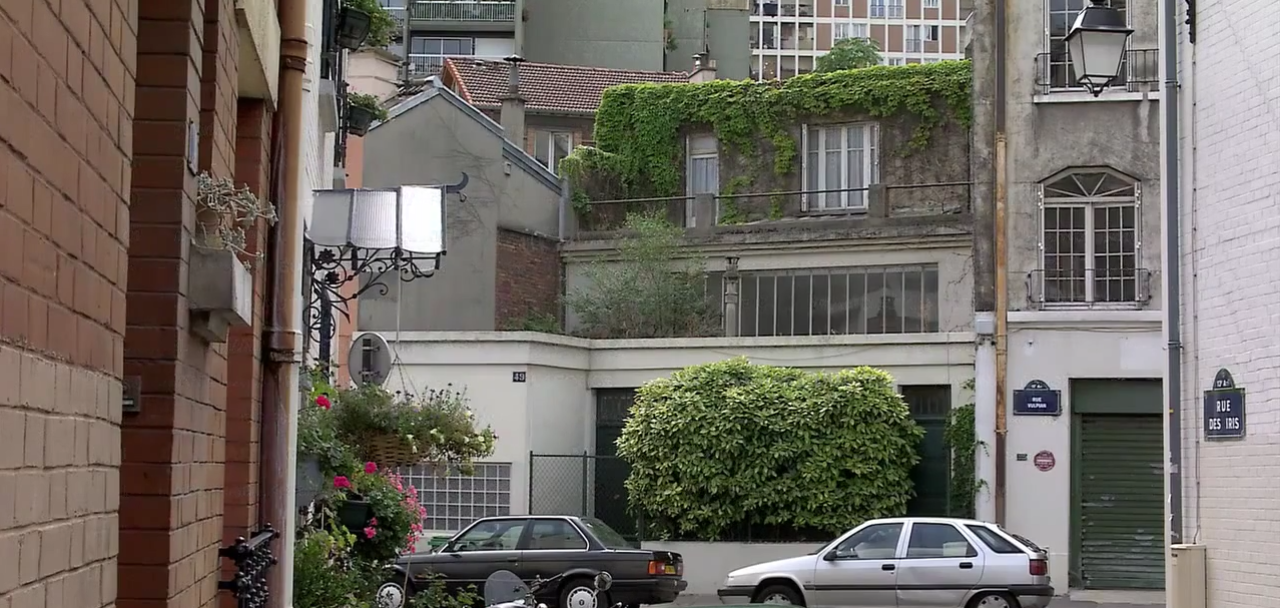
The latter, who we never ever see in a settled peaceable state, ends up perennially getting on the wrong side of his wife Anne who spends the whole film being angry and resentful on account of what she perceives as George's lies and secrets regarding the true source of those taunting video tapes. An increasingly angry Georges sets out to find and confront who he believes to be the most likely creator of the video tapes.
You will - I presume - best enjoy the film for its spare aesthetics and invitation to indulge in conjecture and metaphor for the gentle joy of it. If on the other hand you persistently require single answers set in concrete, this movie was never aimed at you.
Most of Haneke's best lauded films have come after he had settled well into his middle-age ; and the effect of experience aside, the assurance of no-frills story-telling in these premier works is palpable. There is no cotton-candy sentiment in the excruciating honesty of old age in "Amour". In the inexorably stylistic monochrome of "White Ribbon", we re-experience Ingmar Bergman's black-'n'-white requiems where the meaning of the drama is subservient to the implacably anhedonic ethos behind it.
What's his unrelenting shtick for 'Cache' ? Chiefly, it "lies" in the visual framing which is easy to note, and in the not-so-easy multiple applications of the film's title that subtly pepper the story. And just under the surface, but unmistakably there, are subliminal echoes of getting one's just desserts for a colonial past.
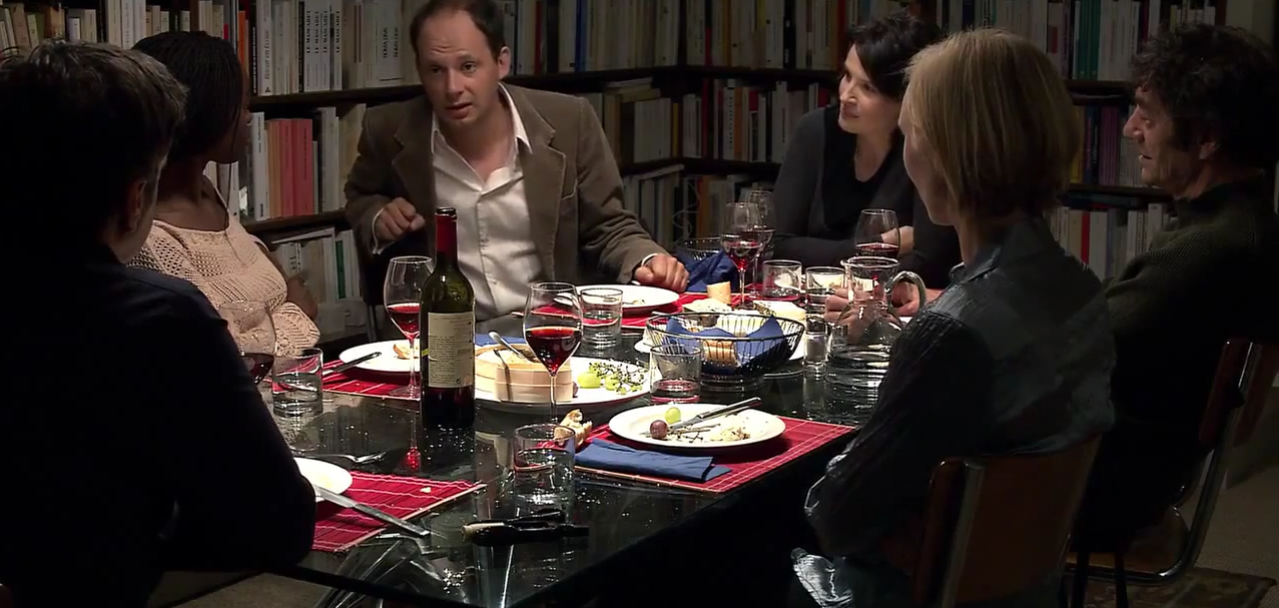
Pic does not open with the couple noticing the tapes outside their door. Instead we behold a frame of a cluster of closely set suburban houses with the focus on the one in the middle. It is a static frame. Unless you crank up the volume, you may think it is just a big photograph rather than a silently recording camera. And then the frame starts filling up with opening credits.We then realize that the images are on their TV and that Georges and Anne are watching the latest recording sent to them. Georges stomps outside to see if the culprit is lurking nearby, but there's nobody there.
The still-camera captures in other contexts, are some of the movie's finest moments. Towards the end, there's a long-distance shot of an old large country-estate home. In the foreground, the action involving adults and a child is not terribly important but the whole wide-angle scene, with the impressive worn colours of that forehead-like roof which would look peachy even on a painting, makes for a striking recording. In another long-range shot, a chicken is beheaded with a small axe and its headless body flaps and bounces around repeatedly on the ground in netherworldly paroxysms - that scene put me off consuming chicken and re-triggered my ethical dilemmas over meat-eating.There is another static-camera take involving a sharp instrument which did not shake me that much emotionally but it is a scene of such silent horror so cleanly executed that many film-makers will admire how neatly it is done.
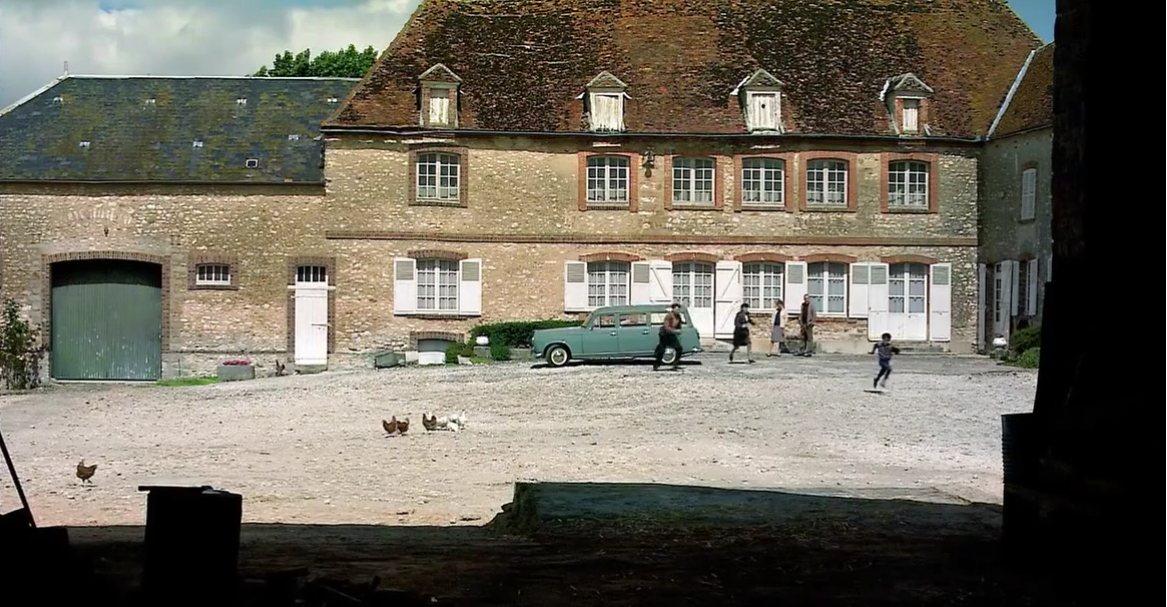
Inspired by the recording of a mostly static lens evidenced in those video tapes , Haneke uses the idea to film several conversational scenes with barely any camera movement. It purifies the focus on the characters and their emotions, and avoids the cross-cutting that we see so often in films.
'Cache' means 'stored away' or 'hidden' and this idea is pervasive in the entire movie. Both the characters and Haneke tease us routinely with missing or doubtful information. Georges seems perpetually ill at ease and overall there is no mistaking the fact that he does not come across as a nice person. But on TV, he is a respected host of a literary review show and his likable on-screen persona is distinctly removed from his real-life one. With Anne, there are moments of composure and smiles when she deals with others but never when she interacts with Georges, which leads one to wonder whether their marriage was disturbed much before the tapes came in.
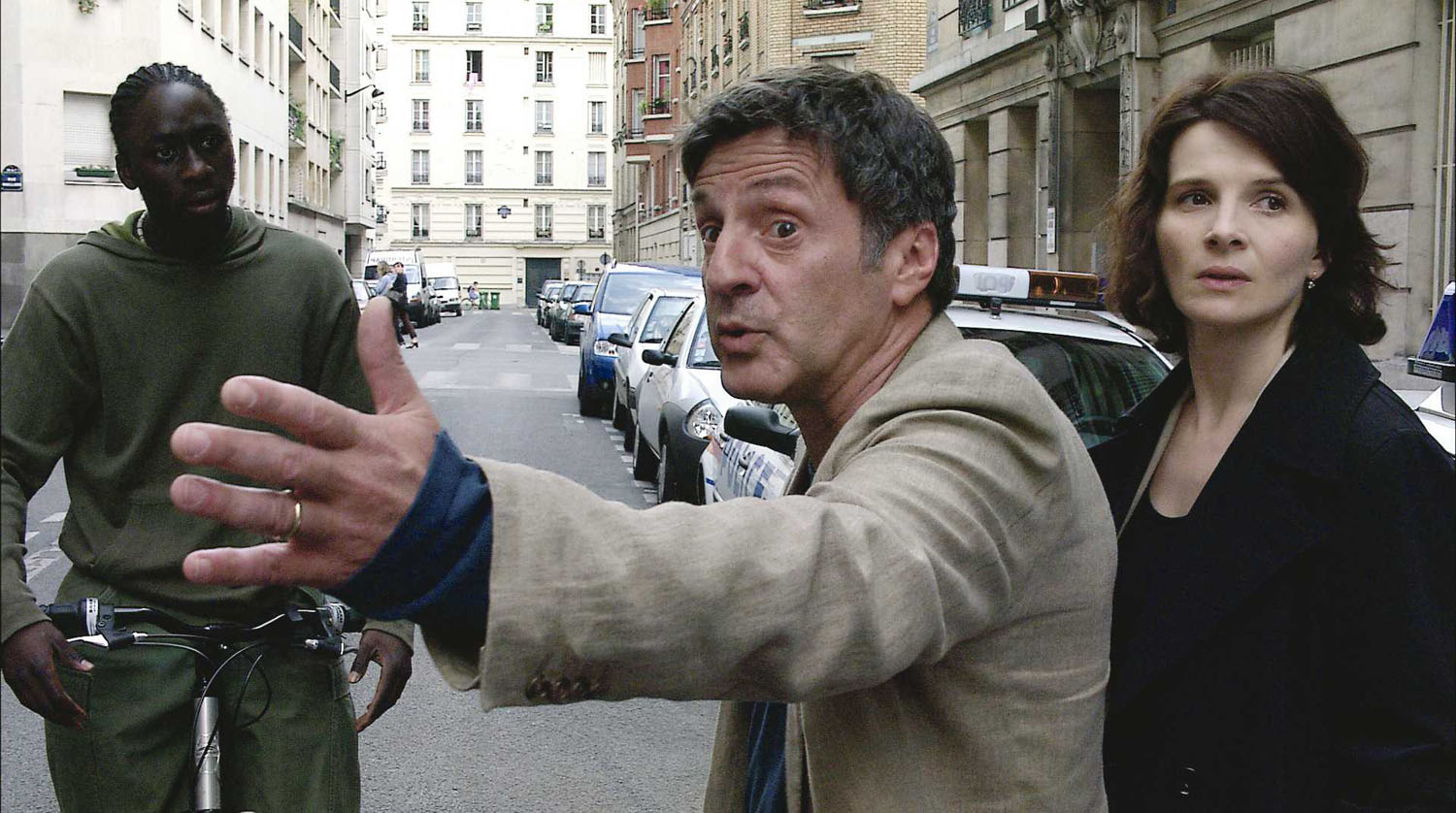
From what we see, the creator of those tapes seems likely to be a person we and Georges suspect, but confirmation is far from forthcoming, Georges reveals something from the past which we think triggered the whole chain of events years ago, but then that revelation starts to lose credibility. It is very difficult to derive satisfaction from ruminating about the plot but Haneke's success lies in the way he teases and taunts us, making an event happen or not happen, making us wonder what goes on in the character's minds rather than what they are saying, and managing more often than not to calmly, slyly buck expectations.
There is a quick reference to a savage real-life event that happened in Paris in 19sixty1. The movie does not repeatedly reference it, but we eventually realize that it is the central event which sets this story into motion. But the tide seems to be turning since then, and people of colour now are much more confident vis a vis the white man. 'Cache' gives an early echo of this when Georges steps onto a street and narrowly avoids collision with a black youngster speeding by on a two-wheeler. Their altercation ends when the latter dangerously but calmly challenges Georges to swear one more time.
Background music often gets special mention in these columns, because it is so important in sculpting the feel, the tone of a scene. 'Cache's feel and tone are just right, despite there being no background music in this movie whatsoever.
So rather than trying to find the purported greatness or true essence of "Cache" in its story-line alone, it is better to regard this as full-fledged multi-faceted cinema that Haneke has become an expert in. "Cache" becomes sequestered in a class by itself as an artistic still-camera document, a psychological thriller grounded in day-to-day reality and an important reminder of barbaric history.
UPN
UPNWORLD welcomes your comments.

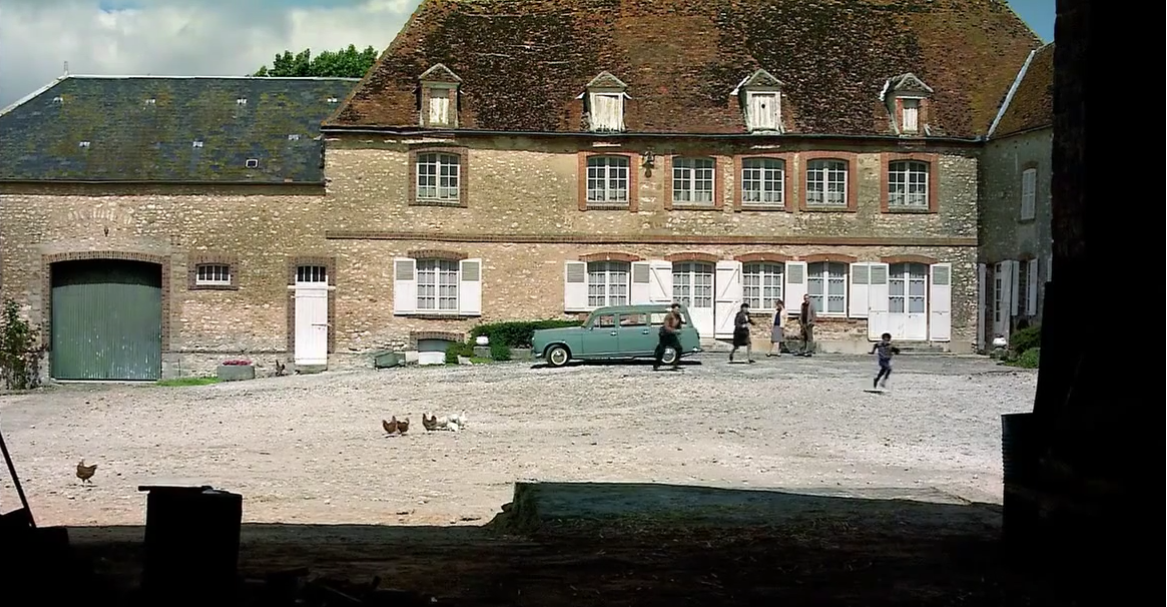
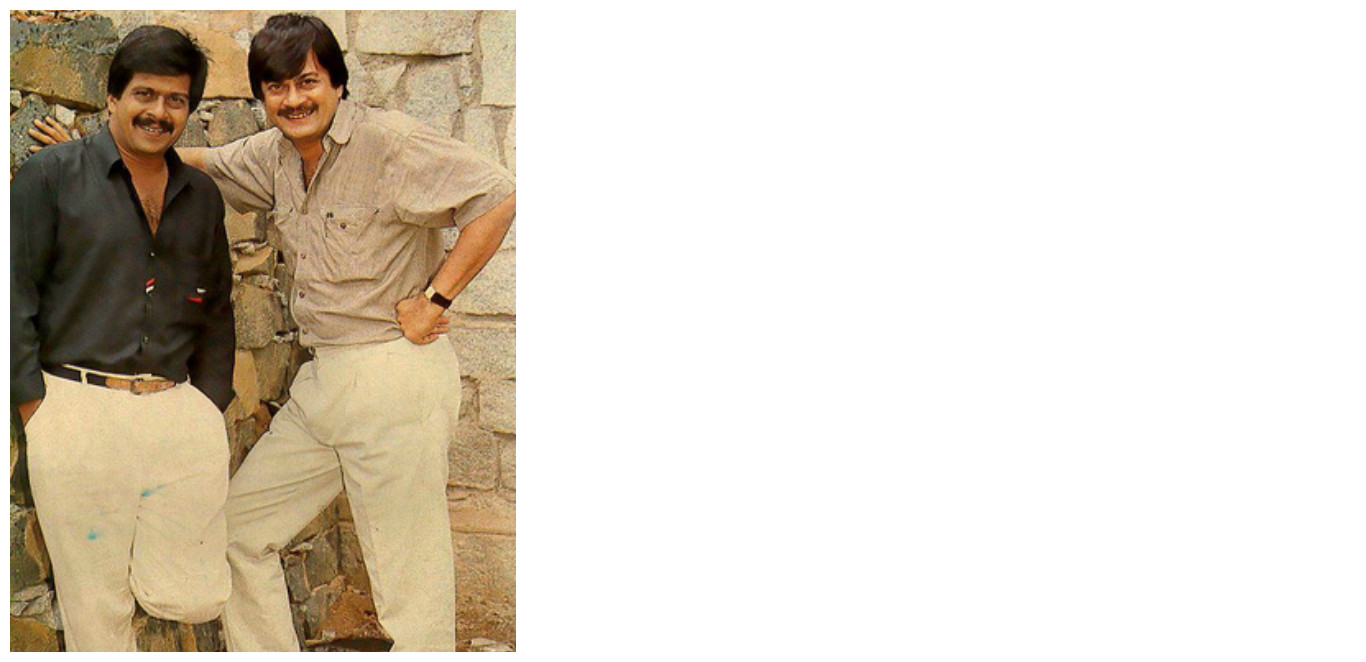
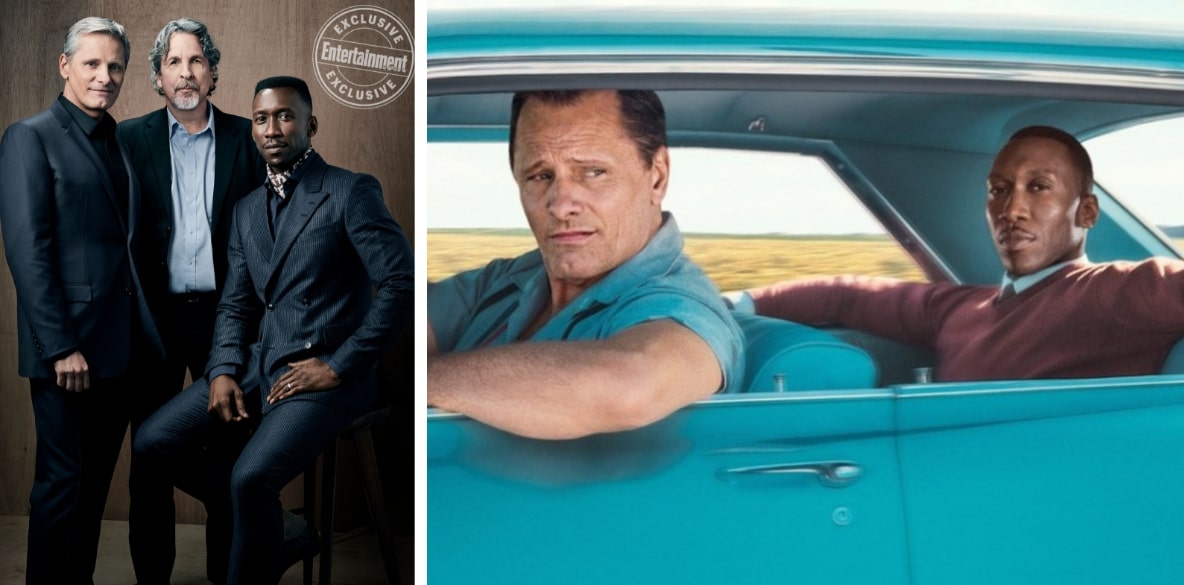
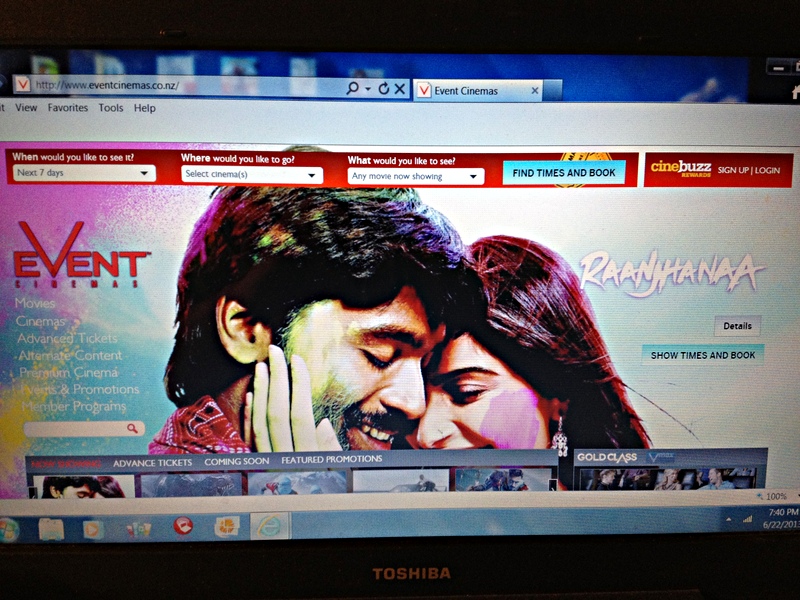
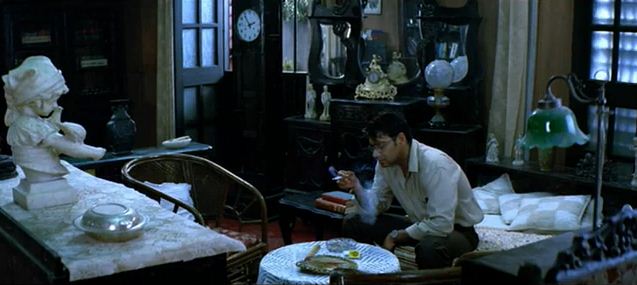




0 COMMENTS
WRITE COMMENT